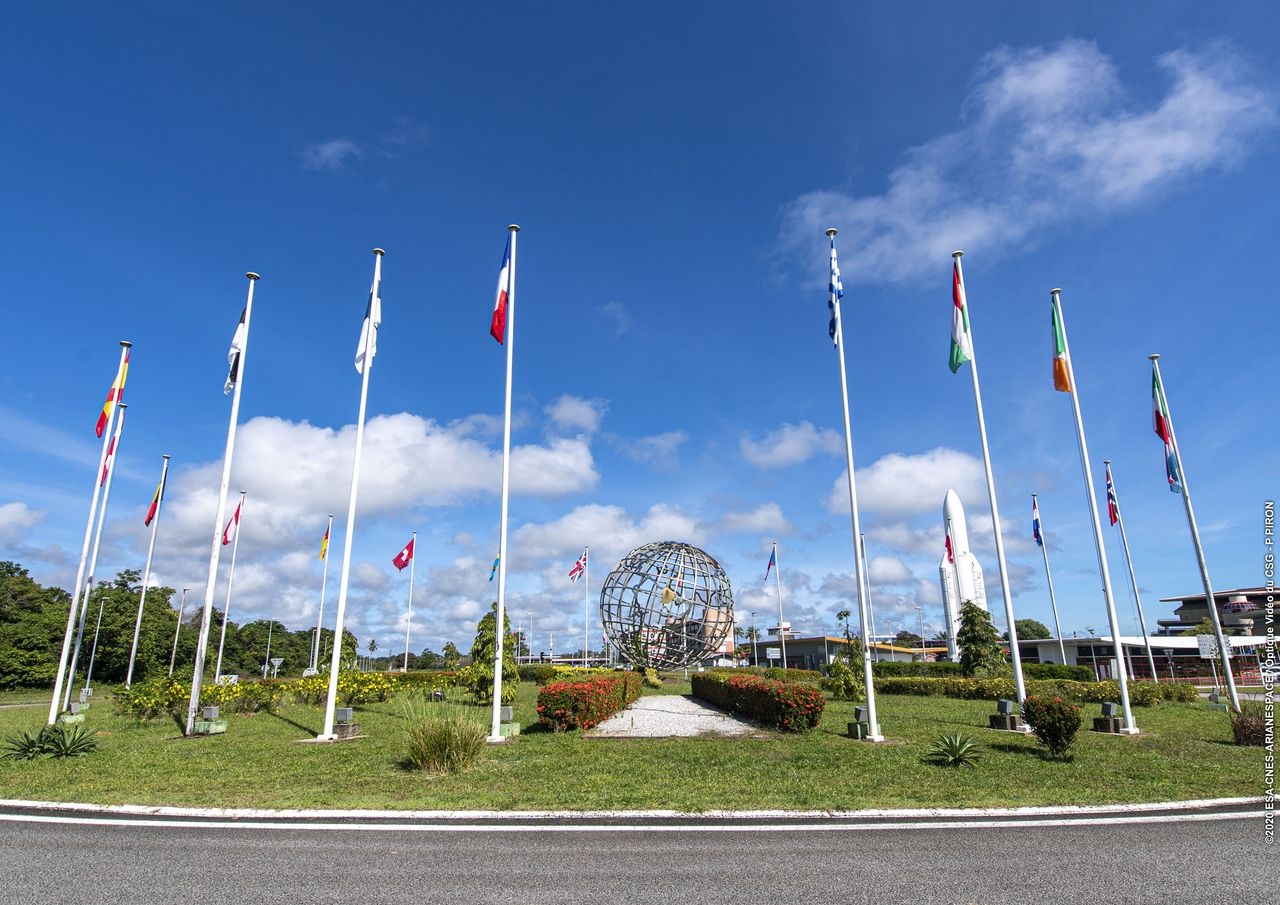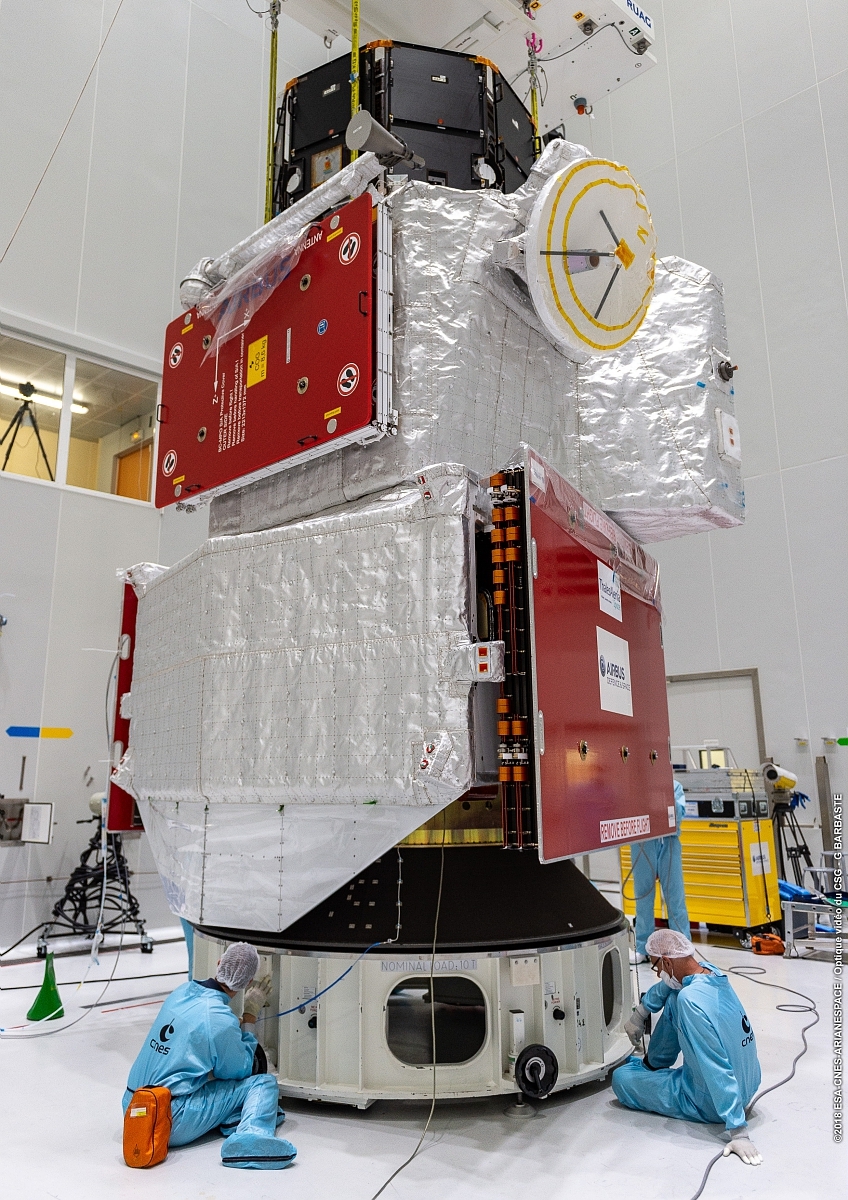A European base

Flags of ESA Member States at the entrance to the GSC
The missions of the Guiana Space Centre are in line with Europe’s space transportation objectives.
Guarantee autonomous access to space for Europe
In 1973, the Member States of the European Space Agency (ESA) agreed on the need for their own launch facilities. It was then decided to build these facilities at the Guiana Space Centre, then owned by France and placed under the responsibility of CNES. Operational since 1968, the GSC was chosen as the location for the European launcher project, Ariane.
Play a leading role in the global launch services market
To enable Europe to maintain its position as a major player in launch services, the European Space Agency makes its launchers and facilities available to Arianespace. Founded by CNES in 1980 to meet the demand for commercial launches, the company operates and markets the Ariane, Soyuz and Vega launches from the GSC.
Put European programmes into orbit
Under an agreement between the European Space Agency and the French government, the GSC is Europe’s spaceport: ESA uses the GSC as a launch base for its Ariane and Vega launchers as well as for its programmes and satellites.
ESA is responsible for building Ariane and Vega launchers. It has entrusted the development of launchers to CNES for the Ariane 1 to 5 programmes, to ArianeGroup for Ariane 6, and to Avio for the Vega launcher.
Many remarkable European programmes and satellites have reached space from the GSC. These include:
- Rosetta (2004), the first probe to approach a comet and then deploy a lander to its surface
- Galileo, (11 launches between 2011 and 2021 from the GSC), the European navigation satellite system
- Gaia (2013), the satellite that produced the first 3D map of the Milky Way
- Copernicus - Sentinel (2015-2017), a constellation of Earth observation satellites
- Aeolus (2018), which studies winds and their effect on climate
- BepiColombo (launched in 2018), to explore the planet Mercury
- Webb (2021), the largest and most powerful space telescope in the search for the origins of the universe. Produced in cooperation with NASA and the Canadian Space Agency.

Cooperate with European countries
As a launch base for launchers and satellites developed by European institutions and customers, the GSC is a conducive hub for cooperative projects. Many European satellites have been launched from French Guiana.
Encourage European companies to work at the GSC
As the Guiana Space Centre is mainly funded by all 22 ESA Member States, a principle of geographical return applies. European companies have been able to bid for GSC tenders since 1975. Hence, among the companies working in the spaceport, several are from European countries other than France. Learn more about the companies at the GSC.
A duty of EU countries
Since the signing of the Lisbon Treaty in 2007, space policy has been one of the responsibilities of the European Union, which develops programmes to meet Europe’s institutional and commercial demands.